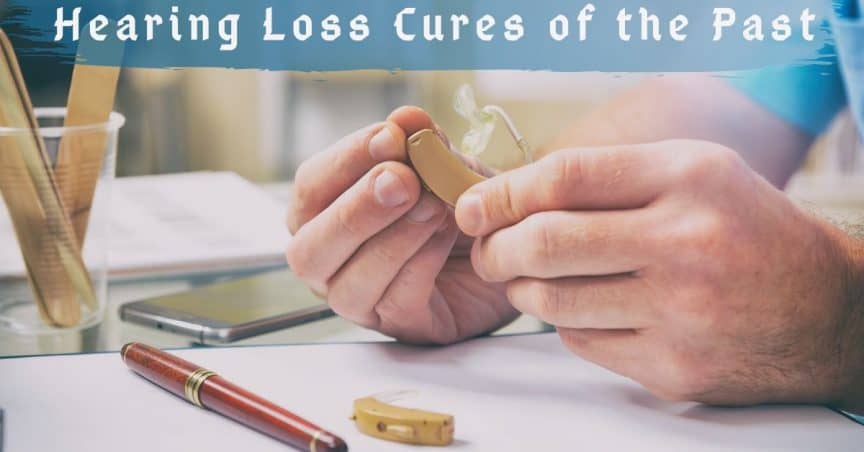- The Emotional Journey of Accepting Hearing Loss - October 25, 2024
- Making a Style Statement with Hearing Aids This Fall - October 15, 2024
- Fireplace Safety and Hearing aids - October 4, 2024
Fortunately, we are well informed about hearing loss, the symptoms, and effective treatment options. Today, there is substantial research and information available that has contributed to a greater understanding of hearing loss and the numerous ways it impacts peoples’ lives. Hearing loss has been a health concern that people have been navigating for hundreds of years. But before innovative technology, evolution of medicine, and advancements in science, how were people treating this medical condition?
Throughout time, doctors and health practitioners have tried a variety of remedies to treat hearing loss. Though well intended, these attempted cures were often bizarre and still left people with impaired hearing. A few past remedies include:
Beethoven’s Hearing Loss
Beethoven started noticing his declining hearing ability in his twenties (around 1798!). He experienced severe tinnitus which is a ringing or buzzing noise in the ears (a common symptom of hearing loss). He also had difficulty recognizing words and high frequency sounds. By his early thirties, Beethoven lost 60% of his hearing. Beethoven consistently tried to cure his hearing loss and following the advice of different doctors, attempted numerous remedies like:
- Almond oil
- Cold baths then lukewarm baths
- Herbs
- Passing electrical currents to the ear (to activate it)
- Self-isolation to encourage and increase rest
These remedies did not work and his hearing continued to worsen. By the time he reached his forties, he was deaf which required him to pass notes during conversations and impacted the way he composed music. The different “cures” Beethoven tried indicates the types of remedies that were attempted in the past.
Putting Something in the Ear
The most common way that people attempted to treat hearing loss was by placing something in the ear canal. As previously mentioned, Beethoven was instructed to put almost oil in his ears. Now seeming completely random and dangerous for one’s hearing health, some of these things included:
- Placing a twig in the ear and leaving it in place until the hearing loss was cured.
- Using plaster to create blisters in the ear. When the blisters popped and pus came out, it was thought that toxins and bacteria were being released thus curing hearing loss.
- Frying peach pits in pig fat, extracting the liquid, and placing drops of it in the ears.
In addition to putting highly unusual objects and liquids in the ear, people tried ingesting different things.
Oral Remedies
Oral remedies were another major way people tried to cure hearing loss. Herbalists have mixed various herbs, tonics, and have tried a plethora of recipes to enhance hearing. Additionally, people have made claims that drugs such as opium and tobacco can restore hearing.
Other (Random) Ways
There are other, still bizarre, ways that people tried to treat impaired hearing such as:
- Jump to the ground from a high place (climb a tree and jump). It was thought that the inertia could reverse hearing loss.
- Bloodletting, which is the withdrawal of blood, was a common way that doctors treated illness and disease. This was also used to try and cure hearing loss.
- Doctors have advocated for the use of artificial eardrums to help sound waves travel further into the ear (which did not work!).
As you can likely guess, these unscientifically founded treatments did not cure hearing loss. They were in fact, often dangerous to the ears and could further harm one’s hearing.
Treatment Today
Luckily, we live in a time shaped by continuously advancing technology and research that has enabled the development of useful ways to treat hearing loss. Though hearing loss cannot be cured, there are several effective ways that hearing loss is addressed and treated. The most common treatment is hearing aids which are small electronic devices that absorb, amplify, and process sound. Similar to many (if not all) electronic devices, hearing aids have experienced significant innovation over recent years. There is a wide-range of styles, features, and technologies that are available. Hearing aids can be highly customized to meet specific hearing needs and lifestyles. This treatment can significantly increase a person’s ability to hear and process information which drastically improves overall health and quality of life!

